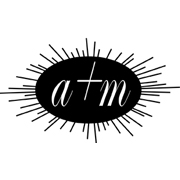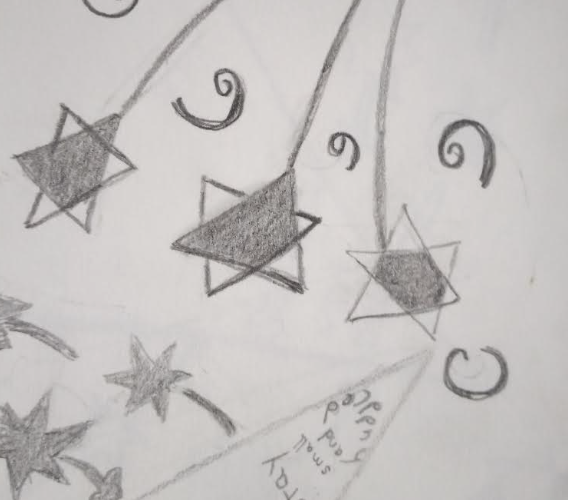Making poems by phone during the pandemic
Phil Davenport
“I think it’s helped me deal with lockdown. It’s helped me sound out what I’m thinking. I’ve been chasing a little flicker of understanding. Trying to think and digest and let it filter in. Or else you drown in your own thoughts, don’t you? If you’re left alone with them too long.” M, participant quote
Necklace of Stars was a project designed to reach out to isolated older people in Derbyshire, with home visits to make poems and art. But when the pandemic started at the same time the project launched, the whole thing was at risk of being cancelled. It took a few deep gulps to move the project from face-to-face workshops to working over the phones. Now the home visits wouldn’t occur — but would phone workshops be anything like a substitute, for participants and for me?
With poems, we question, reflect and reconstruct ourselves. They’re an internal communication, with the self. They are also a messenger sent out to the world to say “I am here”. They tell stories, histories, fantasies, truths and lies; poems can strip away illusions, or pile up mysteries— sometimes all in the same verse. Poems have been around a long time, for good reason, however they’re usually considered to be a luxury. In lockdown, poems became part of the rescue package.
Being alone is not a bad thing per se — it’s only by spending periods diving into your internal world that you’ll find space to hear yourself and find time for that voice, once formed, to be articulated. Spare time was forced on us in 2020, so this was a great opportunity to write. Learning to write is partly about learning the art of solitude. To make things that require time and repay it with depth and resonance. In this way, perhaps the pandemic could be turned to advantage?
The Necklace of Stars theme of childhood lullabies, stories and the night sky was a great stimulus for some of the writers:
“There is an aura off the starlight, it’s very powerful. It draws us to it, gives us peace and makes us feel our place. Now I’ve got the time I’m coming back to those questions. Instead of taking life for granted, I’m exploring it. Opening my eyes to the starlight. If you can’t see it, you can’t write a poem about it.” N, participant quote
But other people wanted a different kind of space. They needed to address what was going on in the world immediately around them and in their own heads:
“Stories come into my head. All the different ways people have reacted to this time of isolation and shielding. Each of us has a different idea of how we can react to now and how we can rebel. I’m trying to write about how this situation affects each and every one of us. This project is about the stars leading us out of despair. Demonstrate or rebel, and then everyone knows you still exist.”
J, participant quote
The workshops were often customised to people’s individual needs and if possible I tried to build in progression and a sense of challenge. For some people talking and writing became a way to unburden, and a way to make sense of Covid. But the deal was struck that some of the work had to be frivolous and jokes were a necessity.
Being solitary meant that some aspects of life were magnified. Older people often carry grief, for lost partners and friends, and part of travelling into memory meant encountering these presences. But in the case of T as with several others, we then moved onto the memories of childhood for a minute exploration of that part of life.
“The virus makes you go into memory because the future is so uncertain... Writing takes a big chunk of my day, it’s very important to me just now. What am I writing? I’m living in the past, not the recent past which is full of grief for me, but the past of childhood. I’ve stepped beyond the grief and gone right back to something that’s relatively harmless. And going back to these memories helps me to know myself, I see aspects of the child that are in me today.”
T, participant quote
Out of these encounters came a wealth of deeply-felt writing. If you go to the arthur+martha blog you’ll find poems and testimonies there; a mirror of the moment. The emotional intensity of the work was part of the intensity of this time and it made the writing shine. It was wonderfully uplifting to witness people alchemising something bright out of this dark moment. Some poems were modest little meditations on the garden, the neighbourhood, yet they were a big refuge. Here, seen on a local river:
Such a little duck,
holding her own in that strong current,
such determination to rid herself
of whatever was troubling her –
mud, weed, algae, parasites
Minutes went by – then suddenly she stopped,
stood upright, shook off the last drops
from her feathers in a shower of light…
leaving a clearer space in my mind and eyes.
(From On a day of Sorrow, Lorna Dexter)
When I finally stopped in Spring 2021, I felt like I’d run a marathon — exhausted but also with a sense of achievement. In a grim year of lockdowns, fear and loneliness, this small glimmer showed itself. There’s a detailed evaluation of Necklace of Stars by researchers from Nottingham University and this independent evaluation showed that people benefitted from the calls. So did I — in this time of the plague, I was able to be useful, by means of (of all things) poetry.
This is a shortened version of an essay (also used for a case study) written by Phil Davenport for the Culture, Health and Wellbeing Alliance www.culturehealthandwellbeing.org.uk
A Necklace of Stars is a meditation on childhood viewed from the other end of life. Alongside poems, songs and embroidery themed around childhood lullabies, we’ve invited written responses to the pandemic, so that people can share their experiences as an antidote to lockdown loneliness. A Necklace of Stars, working with older people in Derbyshire, is supported by Arts Council England, Arts Derbyshire, DCC Public Health and Derbyshire County Council Home Library Service. This project is particularly aimed at countering isolation; during the pandemic we’ve been working using distance methods – post and phone conversations.






